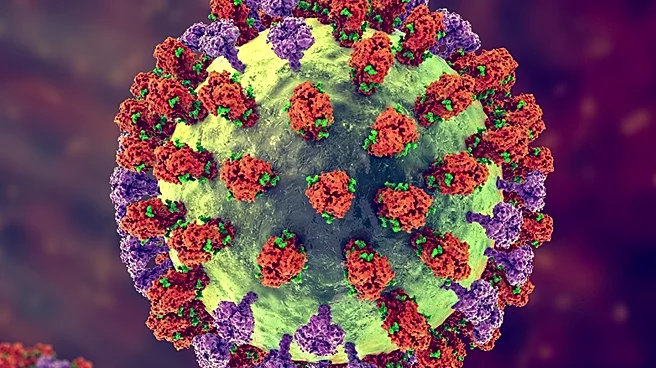What's Happening?
Health Secretary Robert F. Kennedy Jr.'s new vaccine advisory panel has decided not to recommend COVID-19 vaccinations for any specific group, leaving the decision to individuals. This marks a significant departure from previous guidance where COVID-19 vaccines were recommended as a routine fall measure for most Americans, similar to the annual flu shot. The Food and Drug Administration had already limited this year's vaccines from Pfizer, Moderna, and Novavax to those over 65 or at higher risk. The advisory panel's decision, which was made during a meeting at the Centers for Disease Control and Prevention, suggests that individuals should consult with healthcare providers to make vaccination decisions. The panel also recommended that the CDC include more information about vaccine risks, despite opposition from medical groups who assert the vaccines' safety. The decision reflects Kennedy's ongoing efforts to reshape national vaccine policies, aligning with his skepticism about vaccine safety and efficacy.
Why It's Important?
The advisory panel's decision could have significant implications for public health and vaccine uptake in the U.S. By not recommending the COVID-19 vaccine even for high-risk groups, the panel may contribute to public confusion and potentially lower vaccination rates. This could impact the country's ability to manage COVID-19, especially among vulnerable populations like seniors and young children. The decision also highlights a broader debate about vaccine policy and public trust in health authorities. While some public health experts are relieved that no additional barriers to vaccination were introduced, the lack of a clear recommendation may undermine efforts to protect high-risk groups. The move could also influence state policies and insurance coverage, as some states have already announced measures to ensure vaccine access.
What's Next?
The panel's decision awaits approval from the CDC's interim director, Jim O'Neill. Meanwhile, states and health insurers may adjust their policies in response to the new guidance. Public health experts and medical groups may continue to advocate for specific vaccine recommendations, especially for high-risk populations. The decision could also prompt further discussions about vaccine policy and public health strategy in the U.S., as stakeholders assess the impact of the advisory panel's guidance on vaccination rates and public health outcomes.
Beyond the Headlines
The decision by Kennedy's advisory panel may have deeper implications for public trust in vaccines and health authorities. By emphasizing individual choice and highlighting vaccine risks, the panel's guidance could contribute to vaccine hesitancy. This development underscores the ongoing challenge of balancing public health recommendations with individual autonomy and addressing public concerns about vaccine safety. The decision also reflects broader cultural and political debates about health policy and government intervention.










